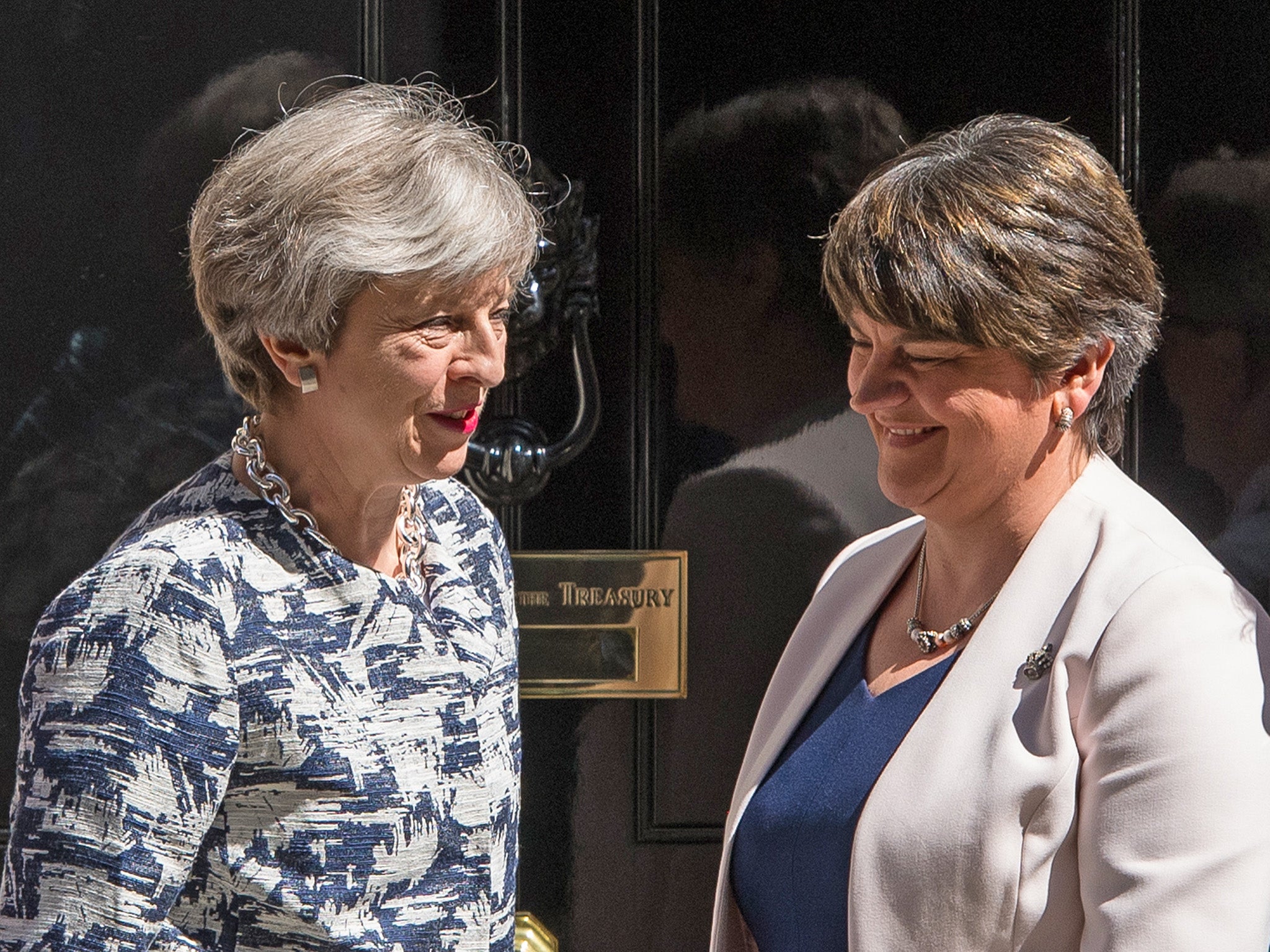At the DUP conference, all eyes will be on the small party as it holds the fate of two nations in its hands
At the site of an appalling IRA bombing of 1978, the Democratic Unionist Party will meet under the glare of a spotlight brighter than ever before

Never before has the Democratic Unionist Party (DUP) annual conference attracted such interest.
The La Mon Hotel, high in the hills above Belfast will be packed on Saturday for the annual get together of a small political party who, rather more by accident than design, appear to have a firm a grip on the fate of not one but two countries.
The people of Northern Ireland voted against Brexit. The DUP, by propping up Theresa May’s government, seek to enable it.
Brexit threatens to return a hard border through the island of Ireland, dividing north and south, for eminently foreseeable reasons. Ireland doesn’t want that, Northern Ireland doesn’t want it, the UK doesn’t want it and the EU doesn’t want it.
In January, for the first time ever, Northern Irish voters returned more Irish nationalist than UK loyalist members to its assembly, and has been unable to form a government since.
It is not yet a year since the extraordinary Renewable Heat Incentive Scandal, which forced Ms Foster to stand down as Deputy First Minister of Northern Ireland.
On Saturday afternoon, she will address her small, traditionally rather uninfluential party as arguably the key power broker in British politics.
Ms Foster has been accused of "holding Theresa May to ransom" over the Irish border question, but Theresa May's position has not significantly changed since her Lancaster House speech, long before her disastrous election result, and long before the voice of the DUP held sway over her.
Brexit, in all likelihood, is happening, and nowhere is more discombobulated by it than Northern Ireland. The political currents that move through it are high in number, intensely strong and move in patterns of immense complexity.
It is almost 40 years since the IRA hung canisters filled with petrol and sugar from meat-hooks outside the window of one of the La Mon’s restaurants. The mixture was an improvised napalm, designed to stick to whatever it struck. Twelve people were killed in one of the worst atrocities of the Troubles.
One of the men arrested and held in custody in the aftermath was Gerry Adams, though he has denied involvement. A man called Robert Murphy eventually served 12 life sentences, though was released on license in 1995, in good time to see huge progress towards peace, led not least by Mr Adams himself.
Much has been said and written about towns on the Irish border, houses with front doors in the north and gardens in the south. In all these places, from picturesque villages like Pettigo in the west, or Newry, on the road from Dublin to Belfast, men and women have bleak memories of border posts and check points, military lookouts, police inspections, that they fear will return in the event of a “hard Brexit”.
But other people, away from the border, will tell you these border towns are “all Catholic ... all Sinn Fein”. They recoil at the words of the Irish Foreign Minister, Simon Coveney, who on Thursday said he hoped to see a united Ireland in his “political lifetime”.
Matthew Liddell, a supply teacher doing some Black Friday shopping in Belfast’s Victoria Centre said: “No. I don’t want to see a united Ireland in my lifetime, political or otherwise. The Irish government couldn’t afford to support Northern Ireland in the way the UK government does. It would be terrible.”
It is a common sentiment. That Brexit is a great shame, but that preservation of the union with the United Kingdom is almost priceless.
Which makes the DUP position all the more mystifying. On Friday afternoon, Theresa May’s spokesperson appeared to suggest that Northern Ireland could remain in the customs union after Brexit, then was later forced to clarify himself that no, Great Britain and Northern Ireland would leave the customs union.
DUP policy is committed to the UK government’s position of as “frictionless” a border as possible between the two countries. But as the Irish Prime Minister Leo Varadkar continues to seek to block negotiations between the UK and the EU moving on to the subject of trade until the Irish border question is settled, no one is offering even a remotely meaningful plan for what a “frictionless” border that crosses a customs union could possibly look like.
Privately, DUP figures make clear that the union with the British mainland is the one they care the most about. Brexit puts Northern Ireland in an almost impossible position, and yet the DUP were in favour of it, not merely now, for reasons of self preservation, but from the beginning.
Ask DUP members why, and you very quickly hear the word “sovereignty”. Ms Foster has no shortage of issues to deal with in her speech on Saturday.
Many of them are entirely domestic to Northern Ireland. Then there is the question of the government in Dublin that could be collapsing. But commitment to the union will almost certainly be restated. Union Jacks will certainly be waved. The word sovereignty may very well even get a mention.
Whether British Brexiteers will ever truly come to feel as if something they have lost has been returned to them, we shall have to wait and see. But no one in the union will have sacrificed more for it than Northern Ireland.
Join our commenting forum
Join thought-provoking conversations, follow other Independent readers and see their replies
Comments